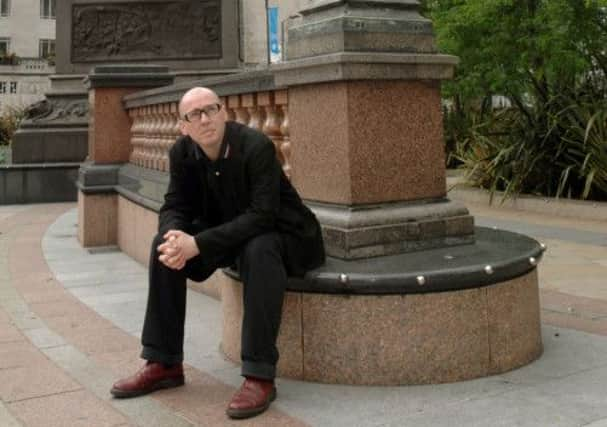Authors warm up for serious literary kickabout


THEY say you should never meet your heroes. Let alone actually befriend them.
I had loved David Peace’s books for many years before we finally met.
Advertisement
Hide AdAdvertisement
Hide AdHe was back in England to promote a new novel and I had just read his novel, a fictional account of the turbulent time when Brian Clough led Leeds United, The Damned United.
We ended up, somewhat inevitably, in our favourite pub (Whitelock’s) having what I recall as being a slight altercation about Liverpool Football Club.
I can’t remember what the altercation was about, exactly, but I know it had something to do with Bill Shankly.
Reading David’s latest novel, an ode to the man he calls “Saint Bill”, I am pretty sure it must have been about the different ways Shankly and Leeds’s great manager Don Revie are perceived.
Advertisement
Hide AdAdvertisement
Hide AdRed or Dead is, by a country mile, the sports book of 2013 (my own latest Does Your Rabbi Know You’re Here?, now out in paperback, doesn’t qualify because it came out last year!).
And this time, one hopes, Peace’s latest book won’t attract the controversy that tainted the reception of The Damned United.
For unlike that towering masterpiece, it accentuates the positive and eliminates the negative qualities of a footballing legend.
David moved back to West Yorkshire a few years ago – he had been living in Japan, came back home, but has now returned once again East – and every month we would meet at the Queens Hotel, next to Leeds Station, and spend a couple of hours catching up. Like Ed Dunford in his first novel, 1974, he had returned to God’s Own County to find that things had changed.
Advertisement
Hide AdAdvertisement
Hide AdFor one thing, while he was away there had been something of a literary renaissance. As the recent Big Bookend event testified, there has been a boom in literary festivals. At one session I co-presented it was clear that Peace’s work – especially his bleak Red Riding novels – had inspired a new generation of writers, highly influenced by his distinctive brand of Yorkshire Noir. In fact my first book Promised Land: A Northern Love Story, was inspired by a line in The Damned United about the Leeds United board: “Half Gentile, half Jew; a last, lost tribe of self-made Yorkshiremen and Israelites. In search of the promised land; of public recognition, of acceptance and of gratitude.” And Does Your Rabbi... would not have been possible had David not introduced me to his friend Jon Riley at the Head of Steam, a fine Huddersfield pub; it was Jon, who turned out to be editor-in-chief of the Quercus imprint, who came up with the idea. I’ve missed David since he returned to Japan, which is one of the reasons why I agreed to have “a conversation” with him at Leeds Waterstones on Thursday August 8. The other is that there are a number of questions I’m dying to ask him about his new book.
The great thing about his novels is that they always engage me. Some have taken issue with his unremitting bleakness. In his imagination, back in the 1970s the West Riding metamorphosed into a land of endless night, a nightmarish world of foul-mouthed machismo, racism and misogyny.
His latest project – on how Shankly transformed a second division team with a crumbling stadium into a British footballing institution – is far from bleak. It is a straightforward celebration of an inspiring figure. I can’t wait to ask him about the contrast between this positive portrayal of Liverpool and his negative depiction of Revie’s Leeds. True, he’s a Huddersfield Town fan, but It almost feels as if he sees Shanks as an antidote to the great Leeds boss, a man who similarly transformed a struggling club into European giants.
But the most interesting thing about Red or Dead is not its football stories – wonderful as they are – or even its staccato, hypnotically rhythmic prose style – perfected in the Red Riding series and GB84 – which, once again, elevates the narration beyond mere storytelling. It’s the politics.
Advertisement
Hide AdAdvertisement
Hide AdShankly’s Old Labour principles, which arose out of his Christianity, produced an ethos at Anfield which has just about survived today’s global-capitalist onslaught.
“I have written about corruption,” he explains. “I’ve written about crime, I’ve written about bad men and I’ve written about the demons. But now I’ve had enough of the bad men and the demons. Now I want to write about a good man.”
Despite being a Huddersfield Town fan (I’m Leeds, always have been), David, too, is a good man.
To write with such a clear moral purpose in these cynical times might, like Shankly’s socialism, be uncool. But David has never cared for fashion. He writes it how he sees it. We might still come to blows on Thursday evening about the Revie-Shankly comparison, but later on at Whitelock’s I will raise a pint to his latest masterpiece. Although, if my recall is correct, it’s his round.